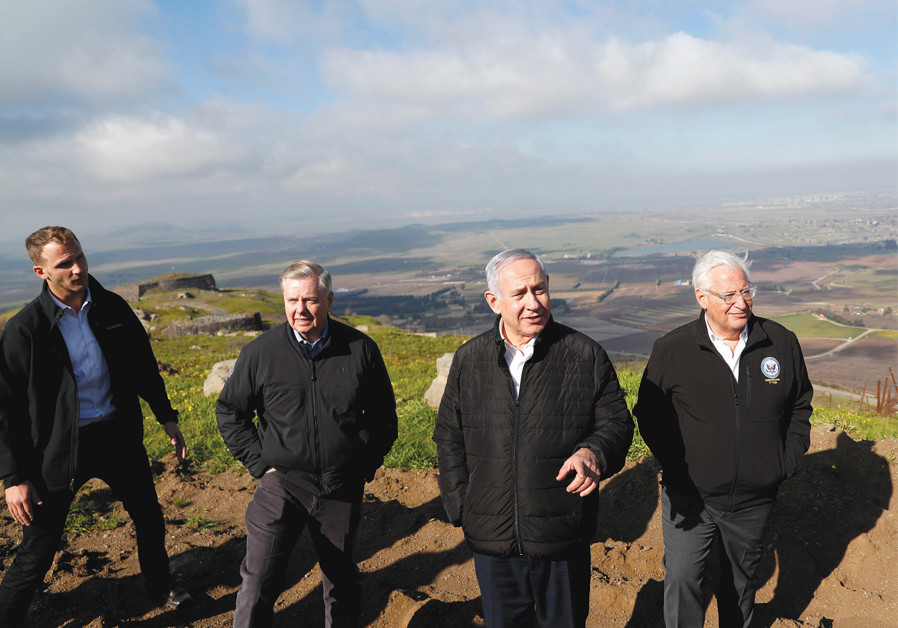“The roadmap that I’m looking for is trying to get the lives of everyday Palestinians improved, and hopefully a government that Israel can do business with,” said Senator Lindsey Graham.

WASHINGTON – Somewhere in the ‘90s, the Israeli Broadcast Association came up with a creative campaign to remind TV owners to pay the semi-annual fee. “What about the other half?” the TV ad said. The ‘90s are long gone, and the Israeli Broadcast Association in its old form has ceased to exist.
But when the peace team announced this Sunday that it would reveal the economic part of the peace plan on June 25 during a workshop in Bahrain, one could feel a de-Ja-Vu for that campaign: what about the other half?
For several weeks, the administration signaled that it would reveal the plan shortly after Shavuot on June 10. But an unexpected announcement from the administration on Sunday afternoon suggested that it would only reveal half of the plan, while the rollout of political part, which is supposed to layout a foundation for a future peace treaty, is still to be determined.
The latest development caused some confusion on the Hill: What’s in the document? Why should the administration have two separate announcements? And what can we learn from the decision to focus on the economic part for now?
“I think there’s a lot of skepticism in the region that the political part is ever going to show up,” Senator Chris Murphy (D-CT), member of the Senate Committee on Foreign Relations told The Jerusalem Post. “I think a peace deal in the region is only possible if there is both an economic component and significant political component. My worry is that the administration thinks that you can get the Palestinians to the table without any significant political concessions. I think that’s unlikely. Expectations are pretty low, and sometimes it’s good to have low expectations.”
On the other hand, many people in Washington, both on the right and the left, are wondering whether the current atmosphere is the right one for releasing a complicated plan that aims to end the conflict.
“I hope they aren’t going to release a plan they know is going to be rejected by the Palestinians immediately,” Murphy told the Post. “I think if they’re releasing a plan that is immediately pushed aside by the Palestinians, it’s probably not worth releasing.”
Senator Lindsey Graham (R-SC), chairman of the Senate Judiciary Committee, told the Post that the Palestinians refusal to participate in the economic workshop should indicate their reaction or the Political part.
“If you’re not willing to work on the economic part, that tells you a lot about the willingness to work on the political part” Graham said.
Graham asked how the administration can get the Israelis to sign a peace deal knowing that a large percentage of the Palestinian leadership are terrorists.
“The roadmap that I’m looking for is trying to get the lives of everyday Palestinians improved, and hopefully a government that Israel can do business with,” Graham continued.
As reported by The Jerusalem Post
